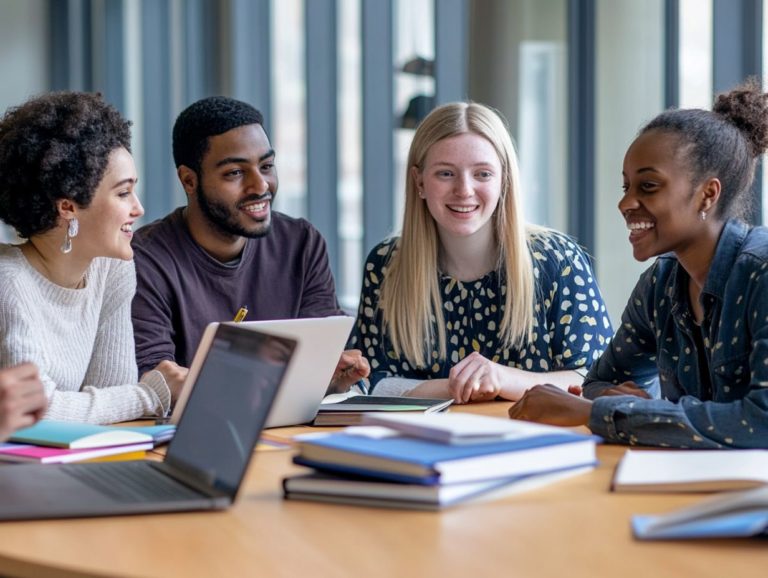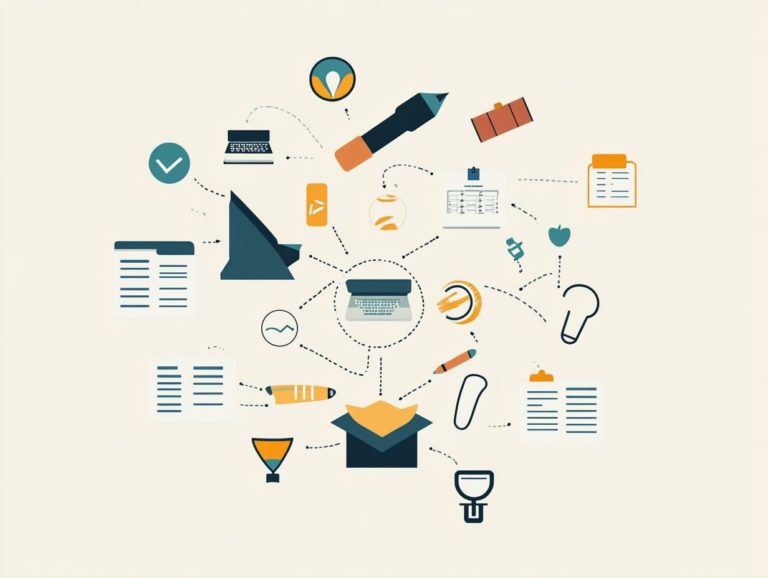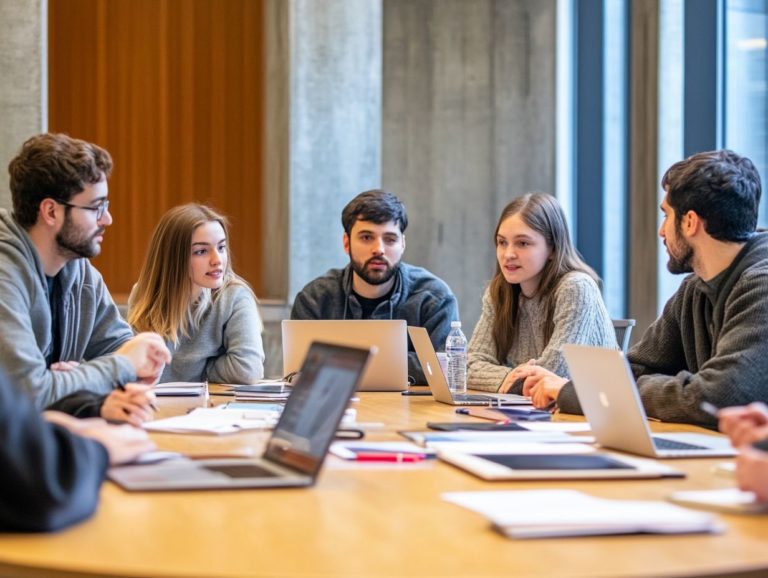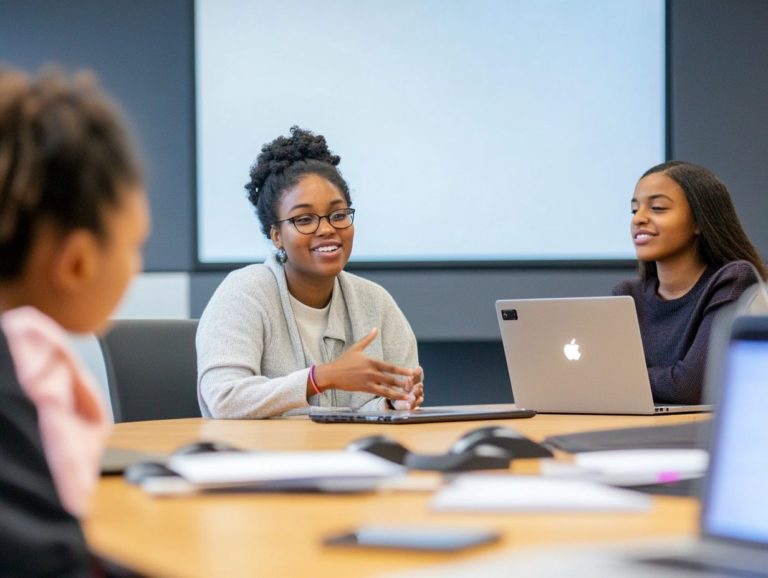Preparing for Your Doctoral Program Interview
Your doctoral program interview is an exciting opportunity! This process not only assesses your fit for the program but also allows you to showcase your passion and preparedness.
Understanding the purpose of the interview, preparing effectively, and knowing what to expect can significantly boost your chances of success. This guide will walk you through each step, from researching the program to post-interview follow-up, ensuring you re fully equipped to make a lasting impression.
Contents
- Key Takeaways:
- Overview of Doctoral Program Interviews
- Preparing for the Interview
- What to Expect During the Interview
- Tips for a Successful Interview
- After the Interview
- Frequently Asked Questions
- What is the purpose of a doctoral program interview?
- How can I prepare for my doctoral program interview?
- What should I wear to my doctoral program interview?
- What types of questions should I expect during my doctoral program interview?
- Is it important to have questions prepared for my doctoral program interview?
- Want to make a great impression?
Key Takeaways:
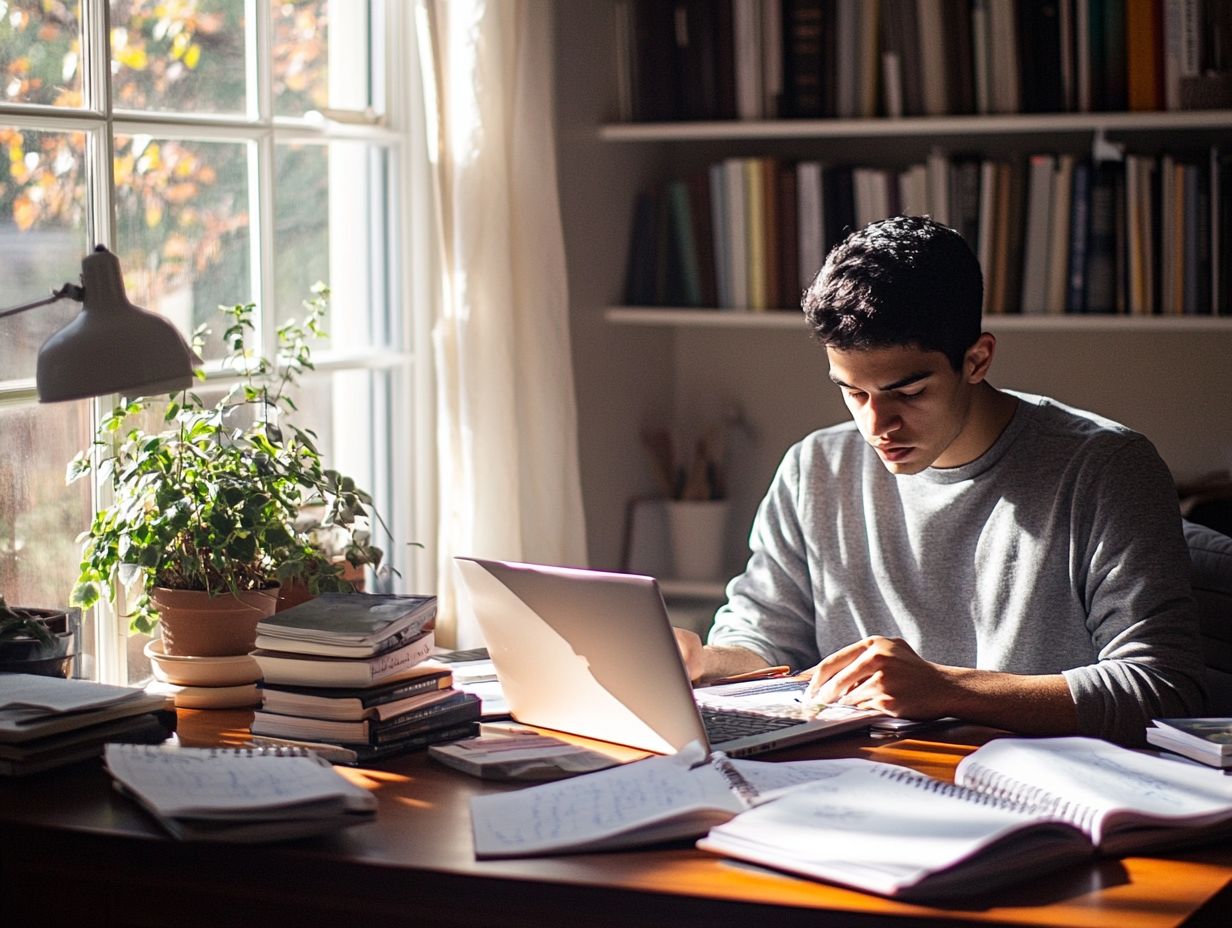
- Research the program and faculty beforehand to show your genuine interest and fit for the program.
- Practice common interview questions to feel more confident and prepared during the actual interview.
- Use positive body language and effective communication skills to make a good impression and showcase your passion for the program.
Overview of Doctoral Program Interviews
Doctoral program interviews offer you the chance to talk about your project ideas and research interests with faculty members. They also help you gauge how well the university s PhD program aligns with your academic aspirations.
These interviews create invaluable opportunities for informal engagement with faculty. In this relaxed environment, you can highlight your independent research and academic qualifications, making a lasting impression beyond the application itself.
Purpose and Importance of the Interview
The purpose of your PhD interview is to evaluate your research interests and the viability of your proposed projects while establishing a connection with a prospective supervisor. Faculty members use this critical evaluation to assess how well your research ambitions align with the departmental agendas.
During the interview, the focus shifts to understanding the significance of your individual research goals and how these contribute to broader academic objectives. By grasping the potential for collaboration, supervisors can identify candidates who will thrive in their programs and enhance the overall research community.
Ultimately, the interview aims to gauge your ability to effectively communicate your vision, determining whether your proposed projects are feasible and in line with available resources.
Preparing for the Interview
Preparing for your doctoral interview requires a deep understanding of your academic interests. You also need to create a well-rounded research plan that reflects your passions, along with understanding the online doctoral application process.
This plan should align seamlessly with the research agendas of the university s faculty and the available funding for PhD projects.
Researching the Program and Faculty
Researching the program and faculty is crucial to grasp the university’s PhD offerings. Determine how your independent research can align with the faculty’s research agendas.
By exploring faculty research interests and departmental objectives, you can tailor your proposals to resonate with ongoing projects and priorities. This alignment boosts your chances of collaboration and cultivates a shared vision for research.
Understanding specific program details and individual faculty expertise enables you to showcase how your work can enhance existing initiatives, fostering a stronger sense of community within the academic environment.
This strategic approach significantly elevates the quality and impact of your proposed research. Don’t miss your chance to shine!
Practicing Common Interview Questions
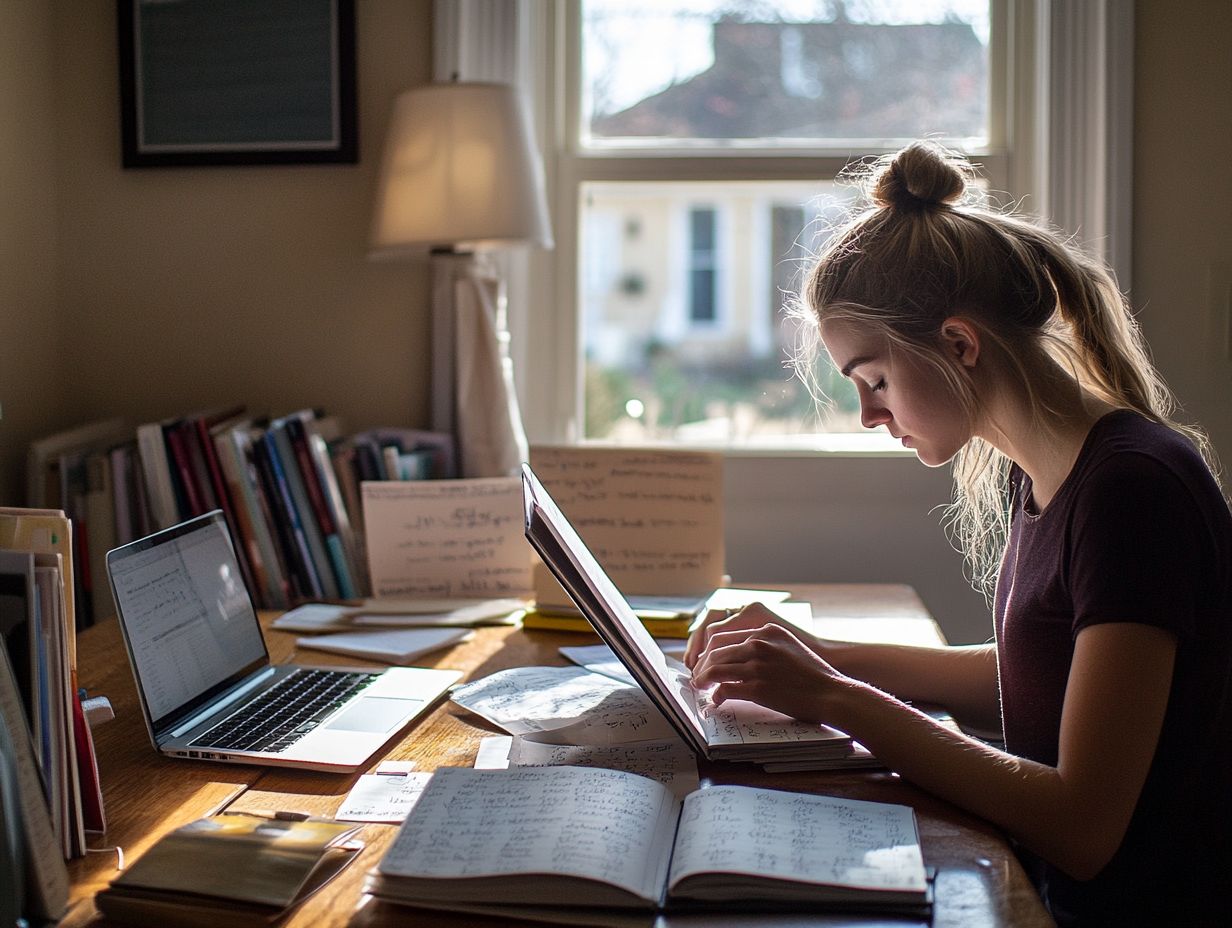
Practicing common interview questions helps you clearly explain your academic background and research interests. This preparation is essential for your success in various interview formats.
This preparation is crucial for showcasing your knowledge and skills. It also helps address potential biases and discrimination that could arise during discussions.
For instance, you might be asked about your experience working in diverse teams or how you handle conflict. It’s vital to share personal stories where you successfully navigated challenges in diverse settings.
By focusing on your commitment to equity, you can leave a positive impression on interviewers. This assures them of your ability to foster a respectful and collaborative workplace culture.
What to Expect During the Interview
In your PhD interview, expect a structured format that usually includes a panel discussion with faculty members.
During this session, you will be evaluated against specific criteria related to your project proposals and academic background.
Format and Types of Questions
The PhD interview format can vary, so be ready for questions about your teaching experience and academic interests. Additionally, you ll need to demonstrate your commitment to your proposed projects.
Different formats, like one-on-one or panel interviews, can shape your conversation’s dynamics. In a one-on-one setting, the atmosphere may feel more intimate, allowing you to share insights about your teaching methodologies.
In contrast, panel interviews include multiple faculty members, pushing you to articulate your academic vision and commitment to your research projects.
Regardless of the format, expect questions about your past experiences leading a class or your strategies for engaging students. These discussions are critical; they give faculty insight into your preparedness and alignment with the program s goals.
Assessment Criteria
Be aware of the assessment criteria faculty members use during the PhD interview. These standards evaluate your academic qualifications and the viability of your proposed projects.
This assessment goes beyond just grades and test scores. Faculty members will closely examine your research experience and critical thinking skills.
They will evaluate the feasibility of your research plan, ensuring it can realistically be executed with available resources and time. Faculty want to see how your past academic work relates to your proposed projects, as a strong connection can boost your chances of success in graduate studies.
Tips for a Successful Interview
To ensure a successful interview, concentrate on refining your body language and communication skills. Also, showcase your genuine passion for and alignment with the program.
Body Language and Communication Skills
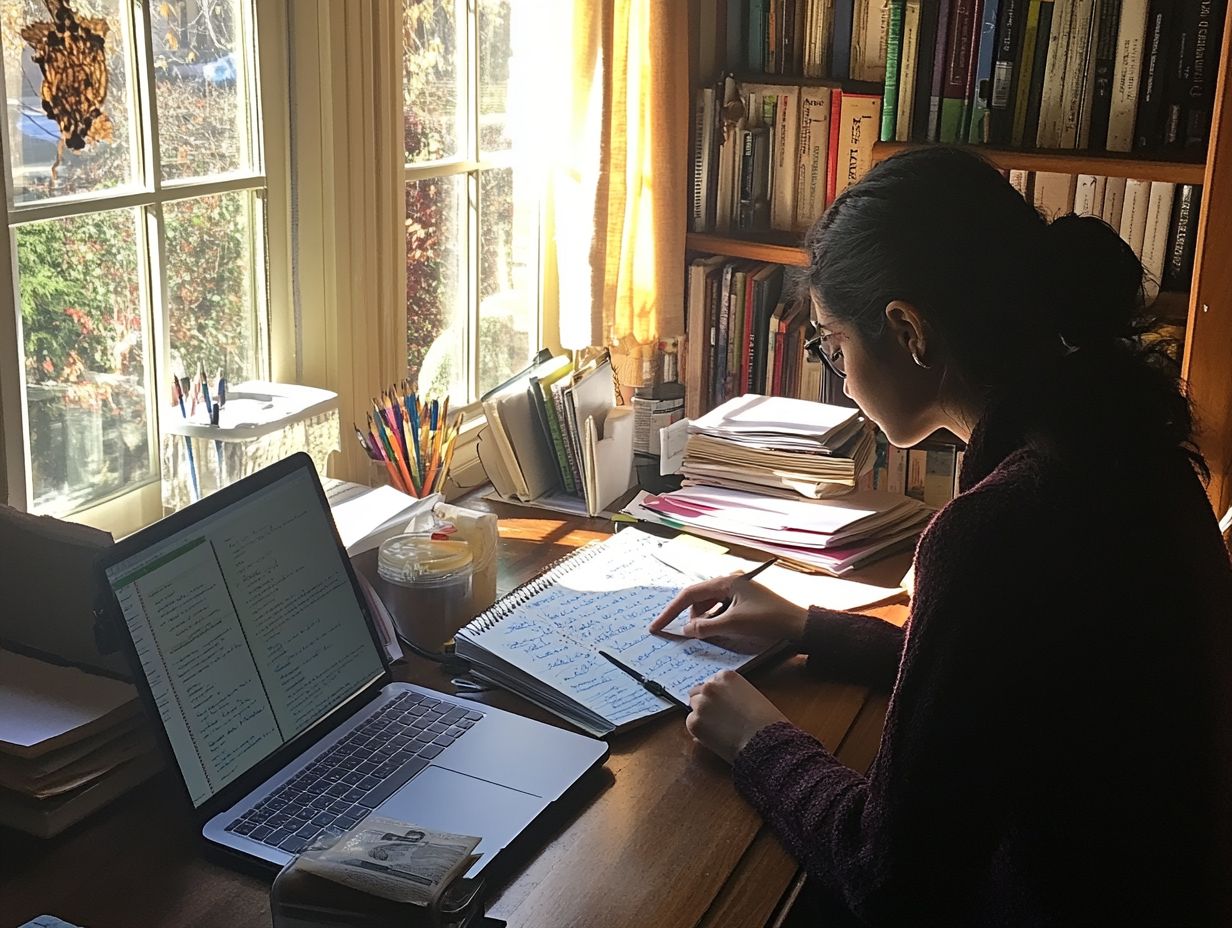
Effective body language and communication skills are essential for making a strong impression during the interview process. Non-verbal cues like eye contact, posture, and gestures are just as important as your words.
When you show confidence and openness, faculty members are more likely to engage with you, creating a meaningful dialogue.
Practicing these skills can greatly improve your ability to connect and communicate effectively. Consider role-playing scenarios or recording yourself in mock interviews to refine these subtle yet powerful techniques.
Quick Tips:
- Practice your responses out loud.
- Stay positive and engaged throughout the conversation.
- Be prepared to discuss how your background fits the program.
- Seek feedback from mentors after mock interviews.
Start practicing today to boost your confidence!
Showing Your Passion and Fit for the Program
Demonstrating your passion and fit for the program during the interview are crucial, as it reinforces your research interests and aligns seamlessly with the project proposal you present.
To effectively convey your enthusiasm, engage the interviewer by sharing personal experiences and examples that ignited your academic interests.
Highlight specific aspects of the program that resonate with your research aspirations think innovative methodologies or interdisciplinary collaborations that excite you.
By showing how your background fits with the program s goals, you create a connection that transcends mere qualifications.
Share your story to engage your interviewer, illustrating not just your commitment to your field but also your genuine excitement about contributing to the academic community and advancing knowledge in your area of study.
After the Interview
After the interview, you should thoughtfully consider your follow-up strategies and the next steps in your admissions journey.
This includes how to effectively inquire about financial support and explore funding opportunities for students.
Follow-up and Next Steps
Following up after your interview is a crucial step that allows you to express gratitude and inquire about the status of your project proposal and available funding opportunities.
Send your follow-up email within 24 to 48 hours of the interview, striking that perfect balance between eagerness and patience.
In your message, remind the interviewers of specific discussions you had, emphasizing your enthusiasm for contributing to the team or organization. You can politely ask if there are any updates regarding the selection process, paving the way for a smoother transition to the next steps in your job search.
Frequently Asked Questions
What is the purpose of a doctoral program interview?
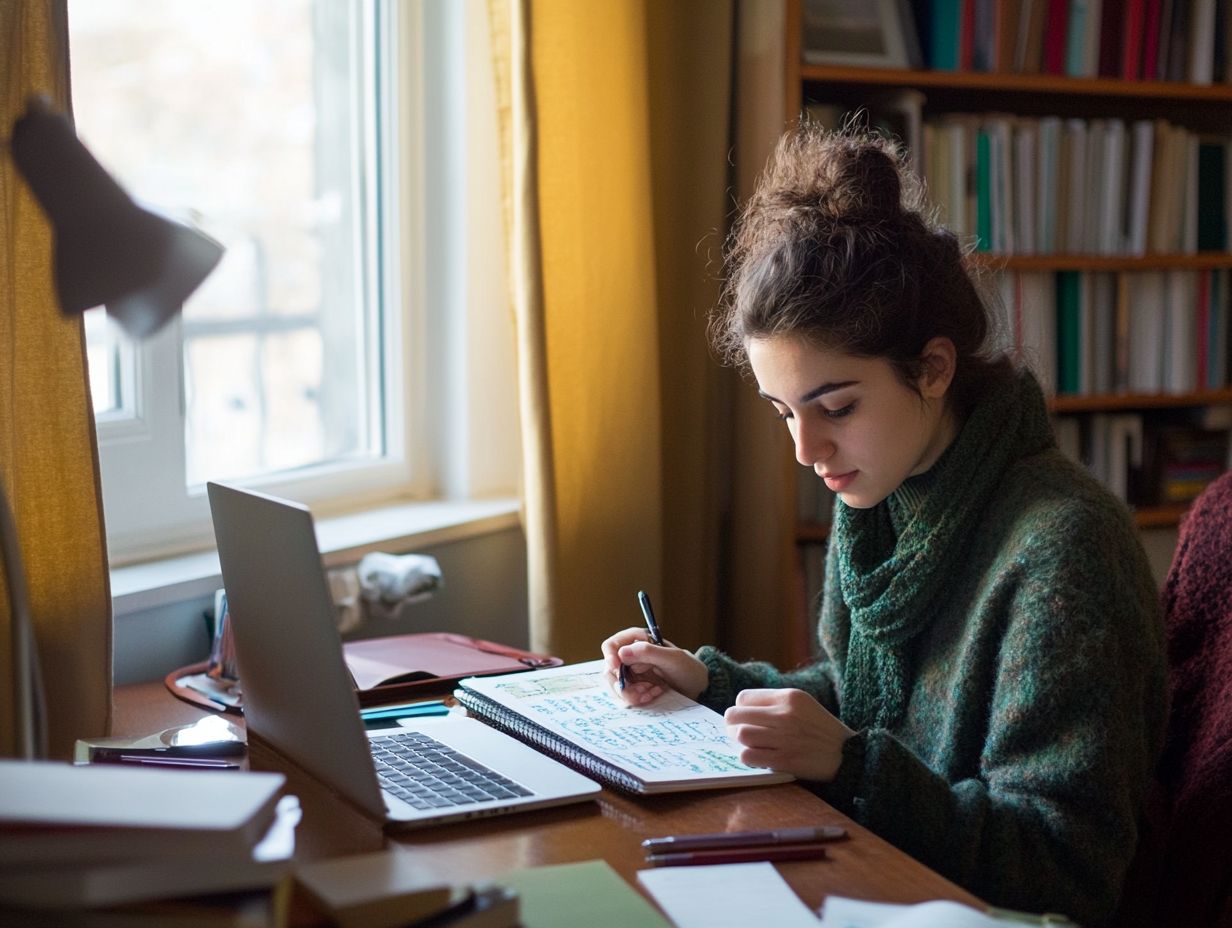
The purpose of a doctoral program interview is for the admissions committee to get to know you better and assess your qualifications for the program. It also allows you to learn more about the program and determine if it is a good fit for your academic and career goals.
How can I prepare for my doctoral program interview?
To prepare for your doctoral program interview, research the program thoroughly and familiarize yourself with its curriculum, faculty, and research opportunities. It’s also important to understand what to expect during your doctoral journey. Additionally, prepare to discuss your academic background, research interests, and career goals. Practice answering common interview questions and be ready to ask questions about the program.
What should I wear to my doctoral program interview?
You should dress professionally for your doctoral program interview. This means wearing business attire, such as a suit or dress for women and a suit and tie for men. Avoid wearing anything too casual or revealing, as you want to make a good impression.
What types of questions should I expect during my doctoral program interview?
During your doctoral program interview, you can expect to be asked questions about your academic background, research experience and interests, career goals, and why you are interested in the program. You may also be asked about your strengths and weaknesses and how you handle challenges.
Is it important to have questions prepared for my doctoral program interview?
Yes, it is important to have questions prepared for your doctoral program interview. This shows the admissions committee that you have a genuine interest in the program and have done your research. It also allows you to gather more information about the program and determine if it is the right fit for you.
Want to make a great impression?
To make a good impression during your doctoral program interview, be confident, articulate, and enthusiastic about the program. Listen attentively and engage with the interviewer by asking thoughtful questions. Also, be sure to thank the interviewer for their time and follow up with a thank-you note afterwards.

